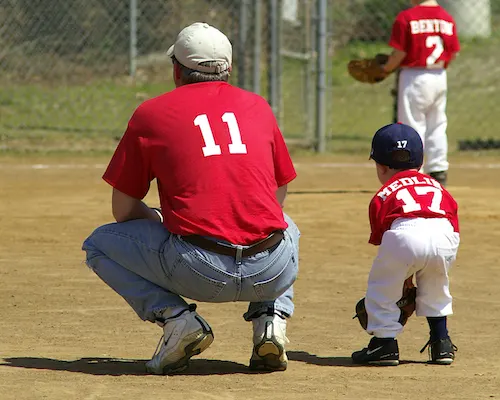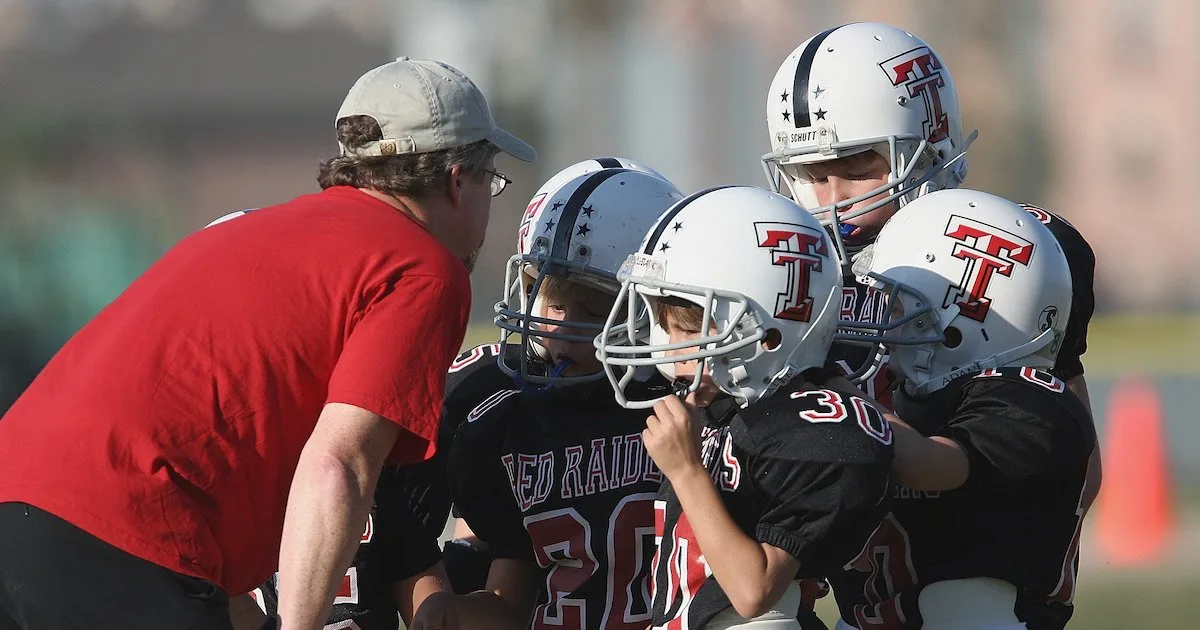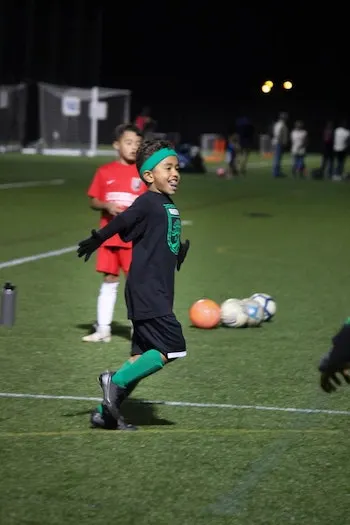A Coach’s Guide to Helping Young Athletes Boost Confidence
The Jersey Watch Team Last updated: December 22, 2021


Self-confidence is key to thriving in life. And what better time to start working on that than when kids are young? Sports have many benefits—physical, emotional, and mental—for the young brain and body. In particular, participating in youth sports and experiencing the successes, and failures, can help improve self esteem.
But developing self-confidence only happens if there are coaches that have strong leadership skills.
Self-confidence is important both on and off the field. During a game, a confident athlete is more likely to play harder and set more challenging goals for themselves. But a robust sense of confidence also lends young athletes a sense of personal control over their lives. They are more resilient when facing adversity and ultimately perform better in life as well as in the game.
What should youth sports coaches do to help athletes increase confidence? Communication, praise, and making our kids feel valued help. A coach has to keep young athletes motivated, while also providing a helping hand and constructive criticism.
In this article we'll provide a guideline to helping your athletes increase confidence levels next season.
Build a Strong Coach-Athlete Relationship
What kinds of relationships are you building with your players? The coach-athlete relationship has to be a two-way street—they need to respect your time and authority, but you also have to respect their time and talent. Constructive criticism is always helpful, but make sure you don’t veer into being aggressive or abusive.
Being overbearing or dismissive can have the opposite effect on athletes from what we want, discouraging them from participating. Helping to boost confidence in our young athletes means uplifting and encouraging them just as much as criticizing. Make yourself available when they need you. Be firm with your critiques, but not harsh—after all, they’re still kids.
When you encourage respect in your athletes, they are more likely to see where you’re coming from with your critiques. They’re more likely to listen and apply your guidance, which will then make them better and more confident on the field—which should then give you more to praise them about! It’s not just a two-way street; it’s a positive feedback loop.

Even at the beginner level, players need the right balance of praise and constructive criticism in order to improve.
Define the Meaning of Success in Your Youth Sports Program
Part of helping our young athletes develop confidence lies in changing how we define success. Success isn't just about winning at all costs. Just because we didn’t win the game doesn’t mean they failed. Remind your athletes that success means effort, focus, proper technique, and self-improvement. Encouraging them—and yourself—to think in more positive ways can lead to increased success overall.
Success for young athletes is about the process, not the score at the end of the game.
Likewise, redefining success also means redefining failure. If success is putting forth the effort and showing up to the best of their abilities, failing is falling short—regardless of what the score says. But failure also isn’t a bad thing! It’s a chance to do better next time. You need to show your athletes you embrace failure and view it as a natural part of the skill development process.
When preparing for a game, encourage your players to set performance goals, instead of focusing on the final outcome. By setting individual goals, they can focus more on doing the best they can and less on who wins or loses.
Finally, remind your players that their improved performance is a journey and not something that will happen overnight. They need to invest more in this journey than their performance on any given game day.

Focus on long-term goals and season long player development rather than short term success.
Use Effective Drills and Practices to Build Confidence
It’s a given that proper youth sports training and practice will boost confidence. Training involves more than what happens in that hour long practice a few times a week. It involves everything leading up to them stepping out on the field for the game, and everything after they walk off again. It’s about discipline, above all.
Practice and training are there specifically to prepare—and keep your athletes prepared—to be ready on game day.
During practice, use drills that challenge your players but that are still achievable if they put in the right effort, focus, techniques. Structure your practices so that you can minimize the amount of time your players stand around and encourage constant movement from each player! Include a variety of drills to limit the monotony. And always remember always acknowledge their efforts and accomplishments.

If your players aren't smiling throughout practice, you should reconsider the drills you're using to encourage more action for each member of the team.
An Evidence-Based Approach to Helping Young Athletes Boost Confidence
It is important to remember that as a coach, you only really have total control over one thing: the standard you set for your team. Great coaching is about boosting the confidence and talents of your young athletes. It’s about creating an environment where the opportunity for success increases, not the winning game itself.
By redefining what success means for your young athletes, you can cultivate their improvement with tangible evidence of their success, no matter how they do on game day.
The question isn’t “Did we win?” any longer; now it’s “Did individually the player improve each week? Did you use the new technique we worked on? Did you execute the new offense with your teammates? Did we allow fewer points than last week?”
Athletes thrive in a high-performance environment where they can see evidence of their success. This evidence is found in their continued development, which includes both their successes and their failures. Knowing that they are getting better, despite whether they win or lose, builds their self-confidence.